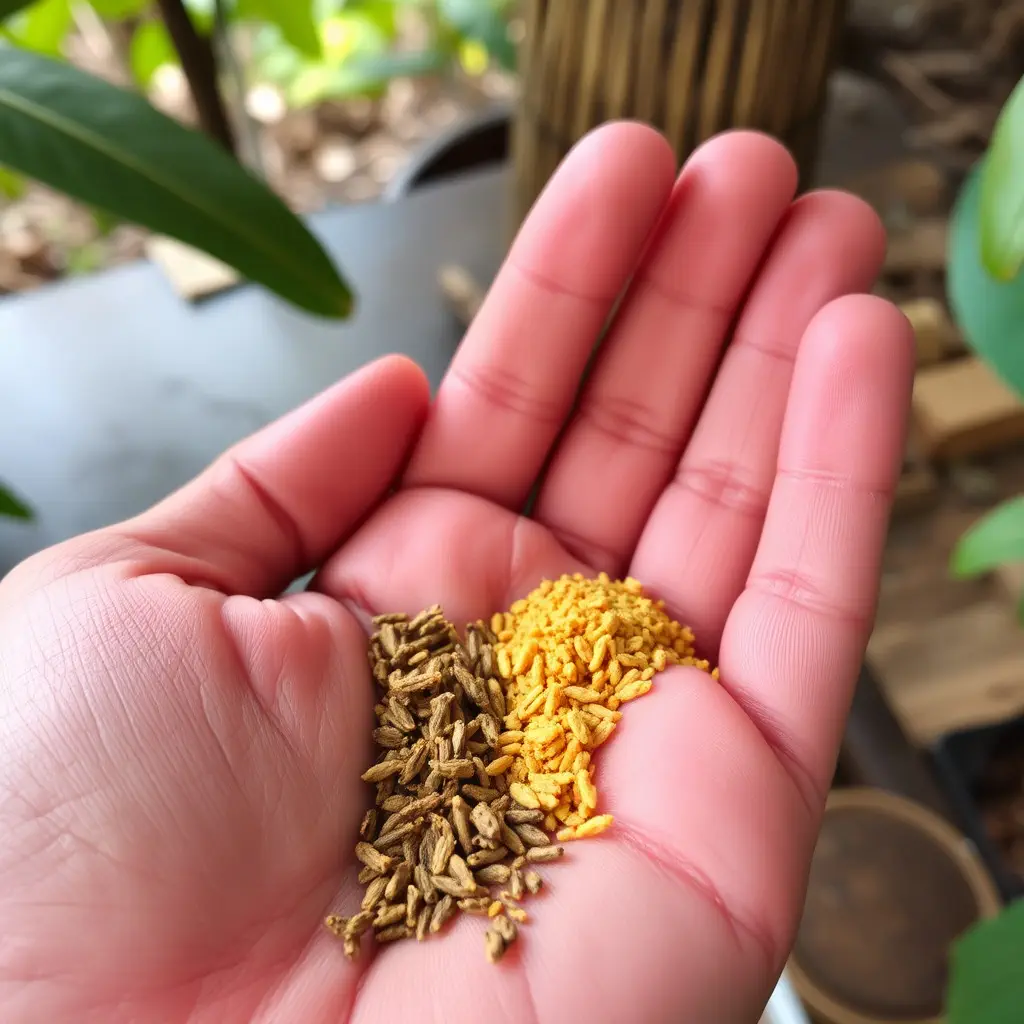The use of kratom, a supplement derived from Mitragyna speciosa leaves, in mental toughness training regimens is being explored for its potential to enhance mental fortitude. However, there are significant concerns about its impact on liver health, particularly with prolonged use, as it contains alkaloids that may affect liver function, prompting the question "is kratom hard on the liver?" To mitigate these risks, it's crucial to adhere to recommended dosages, practice cycling to allow for liver recovery, and incorporate liver-supportive herbs and supplements alongside a nutritious diet. Users are cautioned against combining kratom with other potentially hepatotoxic substances. Regular medical evaluations of liver function through blood tests are recommended for those using kratom. It's important to stay updated on research, consult healthcare professionals, and balance performance enhancement with safety. This approach ensures that individuals can potentially benefit from kratom while minimizing the risk of liver damage, emphasizing a holistic and measured regimen for mental toughness training.
Embarking on a journey to fortify mental resilience often intertwines with physical endurance, where kratom emerges as a contentious yet intriguing aid. This article delves into the nuances of integrating kratom into training regimens, navigating the concerns surrounding its impact on liver health—a common query among those who ask, “Is kratom hard on the liver?” We explore how strategic training with kratom can be balanced for optimal performance without compromising safety. Furthermore, we provide insights into cultivating resilience by incorporating kratom into a comprehensive mental toughness regimen, ensuring a holistic approach to enhancing mental fortitude. Join us as we dissect the intricacies of kratom’s role in mental training, backed by evidence-based strategies and expert guidance for those seeking to harness its potential effectively.
- Enhancing Mental Fortitude Through Kratom: Addressing Liver Health Concerns
- Strategic Training with Kratom: Balancing Performance and Safety
- Cultivating Resilience: Integrating Kratom into a Holistic Mental Toughness Regimen
Enhancing Mental Fortitude Through Kratom: Addressing Liver Health Concerns

Engaging in rigorous mental toughness training often requires a robust support system, both mentally and physically. Kratom, a plant-based supplement derived from the leaves of Mitragyna speciosa, has garnered attention for its potential to enhance mental fortitude. However, concerns about its impact on liver health, a critical organ for detoxification, are paramount when considering long-term use. It’s essential to approach kratom with caution, as research indicates that its alkaloid compounds can exert pressure on the liver. To mitigate these risks, users should adhere to recommended dosages and consider cycling kratom usage to allow for liver recovery. Additionally, integrating liver-supportive herbs and supplements, maintaining a balanced diet, and avoiding concurrent use with hepatotoxic substances are prudent measures. By taking these precautions, individuals can potentially enhance their mental resilience with kratom while safeguarding their liver health. Users should remain informed on the latest research and consult healthcare professionals to make safe and educated decisions about incorporating kratom into their wellness regimen. Regular monitoring of liver function through blood tests is advisable for those who choose to include kratom in their training for mental toughness, ensuring that any adverse effects are promptly identified and addressed.
Strategic Training with Kratom: Balancing Performance and Safety

Engaging in strategic training with kratom necessitates a careful approach to balance performance enhancement with safety considerations, particularly concerning the plant’s impact on liver health. Kratom, derived from the leaves of Mitragyna speciosa, has been traditionally used for its stimulant and sedative effects. However, questions remain about its long-term effects on the liver. While some studies suggest that kratom may pose hepatotoxic risks, especially when used in high doses or combined with other substances like alcohol, it’s also important to note that moderation and responsible use can mitigate such risks. Athletes and trainers interested in incorporating kratom into their training regimen must prioritize liver health through regular monitoring and by adhering to recommended dosages. This includes maintaining a balanced diet rich in antioxidants and engaging in detoxification practices that support liver function. Additionally, it’s crucial to abstain from any form of kratom use if there are pre-existing liver conditions or if one is taking medications that could interact adversely with kratom. By integrating kratom thoughtfully and responsibly into training protocols, individuals can harness its potential benefits while minimizing the risk of adverse effects on the liver and overall health. Regular medical evaluations are recommended to ensure that liver function remains within normal parameters throughout one’s training with kratom.
Cultivating Resilience: Integrating Kratom into a Holistic Mental Toughness Regimen

Engaging in a holistic approach to mental toughness often involves a multifaceted strategy that encompasses physical, psychological, and emotional well-being. Kratom, derived from the Mitragyna speciosa tree, has garnered attention for its potential impact on resilience and mental fortitude. While it’s prudent to approach kratom with caution due to concerns about its liver effects—some studies suggest it may be hard on the liver if used excessively or improperly—it can be a component within a balanced regimen when used responsibly. Proponents of integrating kratom assert that specific alkaloids found in the plant can influence mood and stress responses, promoting a state conducive to mental toughness development. It’s crucial to maintain awareness of one’s overall health and to consult with healthcare professionals before incorporating kratom into any training or wellness program.
To cultivate resilience using kratom within a mental toughness regimen, it’s essential to combine its use with other evidence-based practices. This may include mindfulness exercises, cognitive-behavioral strategies, and consistent physical conditioning. The key is to leverage kratom’s potential effects to manage stress and enhance focus while ensuring that the entire regimen remains sustainable and supportive of long-term mental health. Regular monitoring of one’s liver function tests is advisable, as is adherence to recommended dosages to mitigate any potential negative impacts on liver health. By integrating kratom thoughtfully and in conjunction with a comprehensive approach to mental conditioning, individuals can work towards building the mental resilience necessary to thrive under pressure and overcome adversity.
In conclusion, incorporating kratom into mental toughness training regimens can be a powerful approach when done with proper consideration of liver health and overall safety. The strategies outlined in this article—enhancing mental fortitude by addressing potential liver concerns, engaging in strategic training to balance performance and safety, and integrating kratom as part of a comprehensive resilience-building plan—provide a holistic framework for athletes and individuals seeking to improve their mental toughness with the use of kratom. It’s crucial to approach such practices judiciously and responsibly, ensuring that one remains vigilant about the potential impacts of kratom on liver health, as well as other aspects of personal well-being. By adhering to these guidelines, individuals can harness the benefits of kratom while mitigating any risks associated with its use, thereby fortifying their mental endurance and enhancing their performance in a sustainable manner.






